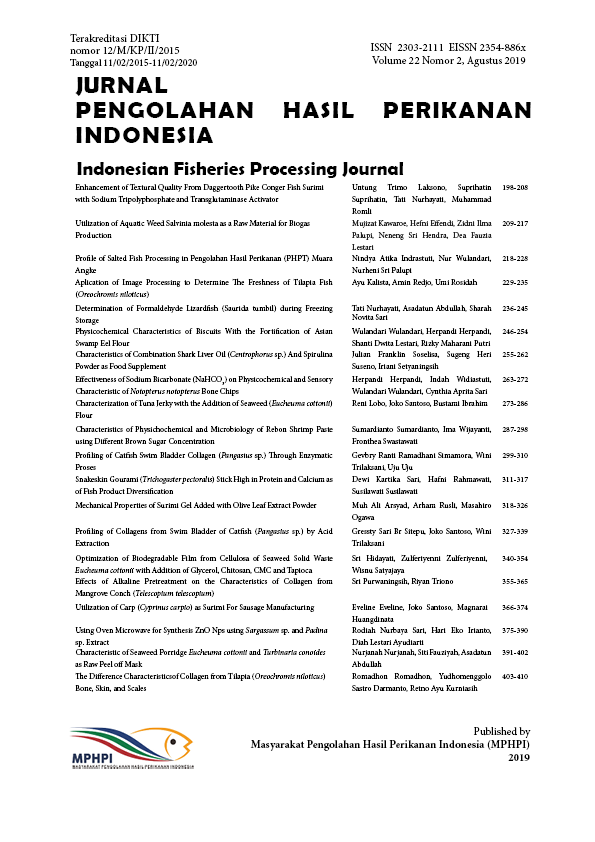Profiling of Catfish Swim Bladder Collagen (Pangasius sp.) Through Enzymatic Proses
Abstract
Swim bladder is a marine byproduct and a potential source of collagen needed by food, cosmetical, biomedical and pharmaceutical industry. This study evaluated the effectiveness of alkaline pretreatment and papain enzyme on the characteristics of collagen from the catfish swim bladders. TThree concentrations of alkaline (0.05; 0.1 and 0.15 M) with were used to pretreat the swim bladders for 2; 4; 6; 8; 10 and 12 hours. The collagen was also treated by papain enzyme with concentrations of 0; 5,000; 10,000; 15,000 and 20,000 U/mg for 24 and 48 hours. The result showed that pretreatment using NaOH 0.05 M for 6 hours effectively reduced the noncollagen protein (p<0.05). Meanwhile, the treatment using papain enzyme with concentration of 5.000 U/mg for 48 hours improved the collagen solubility. The FTIR of collagen showed the existence of a triple helix structure. Meanwhile, the thermal analysis showed collagen gelation transition temperature (Tg) was at 88oC.
Authors

This work is licensed under a Creative Commons Attribution 4.0 International License.
Authors who publish with this journal agree to the following terms:
- Authors retain copyright and grant the journal right of first publication with the work simultaneously licensed under a Creative Commons Attribution License that allows others to share the work with an acknowledgement of the work's authorship and initial publication in this journal.
- Authors are able to enter into separate, additional contractual arrangements for the non-exclusive distribution of the journal's published version of the work (e.g., post it to an institutional repository or publish it in a book), with an acknowledgement of its initial publication in this journal.





